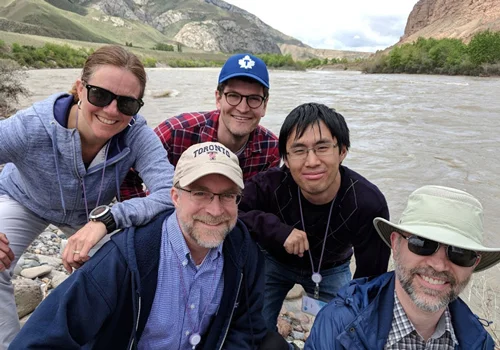A self-driving vehicle has to detect objects, track them over time, and predict where they will be in the future in order to plan a safe manoeuvre. These tasks are typically trained independently from one another, which could result in disasters should any one task fail.
'Experience what characters are feeling': U of T researchers use AI to add '4D' effects to movies
Alumnus named to Canada's Developer 30 Under 30 list
Established in 2017, the Developer 30 Under 30 is a new initiative dedicated to recognizing developers building the infrastructure behind Canada’s companies.
U of T computer vision expert to lead new Nvidia research lab in Toronto
2018 Andre Aisenstadt Prize in Mathematics
Assistant Professor Benjamin Rossman, jointly appointed to the departments of mathematics and computer science, is named this year's recipient of the André Aisenstadt Prize in Mathematics.
Adweek magazine: U of T Associate Professor Raquel Urtasun named among 33 Toronto-based media, marketing and tech stars
From Toronto to Kyrgyzstan: How U of T computer science is going international
U of T grads seek out Toronto jobs as Canada's 'brain gain' gathers steam
U of T wins at the Canadian Finals of Imagine Cup 2018
An oral history of artificial intelligence
Samsung to join other big players, open AI research lab in Toronto
How to evaluate machine learning? U of T research supports latest benchmark initiative
MLPerf, a consortium of industry and academic partners including Google, Intel, Baidu, Harvard University, Stanford University and U of T (Assistant Professor Gennady Pekhimenko), are working together to offer a new benchmark suite to evaluate machine learning performance, from speed to system cost and power efficiency.




















